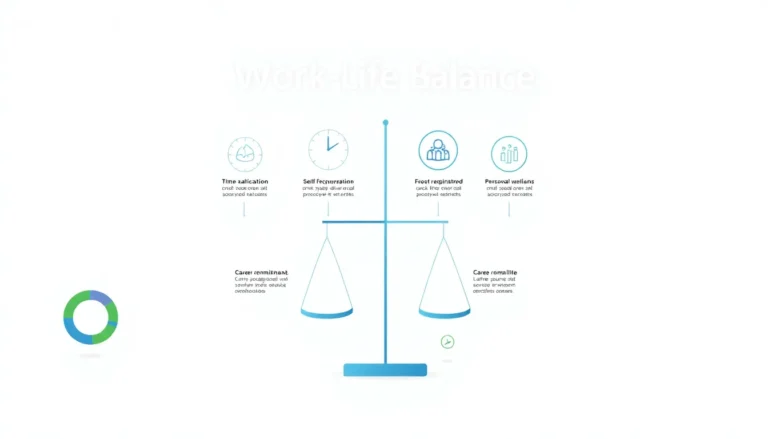Table of Contents
ToggleIn a world where the glossy image of private equity often shines brighter than reality, one crucial factor tends to get overlooked, work-life balance. It’s a phrase that’s bandied about like confetti, but for professionals in this high-octane space, navigating the demands can feel like trying to walk a tightrope while juggling flaming torches. But fear not. With some strategic planning and insights, achieving a harmonious balance is far from impossible. Let’s immerse and explore the intricacies of maintaining a life outside the boardroom while thriving in private equity.
Understanding the Demands of Private Equity

Typical Work Hours and Schedules
When it comes to private equity, the clock doesn’t always tick in your favor. Professionals in this arena often find themselves working long hours, typically spanning from early morning meetings to late evening reports. Research indicates that average work hours can range from 60 to 80 hours a week, especially when major deals are on the table. Weekends might be a quieter time, but don’t hold your breath: urgent deadlines and client demands can easily creep in.
Key Responsibilities and Challenges
The responsibilities in private equity are as diverse as they are demanding. From conducting meticulous due diligence to strategizing exit options, professionals wear multiple hats. This environment is rarely predictable. Dealing with complex financial models, market fluctuations, and intense client expectations can lead to a feeling of perpetual overwhelm. Besides, the pressure to deliver stellar results often conflicts with personal time, creating a cycle that’s hard to break.
Impact on Personal Life and Well-Being
Strategies for Achieving Balance
To find equilibrium in this bustling company, it’s crucial to carry out practical strategies. First, identify your non-negotiables, activities or time slots that are sacred to you, whether it’s a weekly family dinner or an evening workout. Communicating these boundaries to colleagues can foster understanding and, in some cases, a culture of mutual respect.
Time Management Techniques
Effective time management is your best ally. Utilizing tools like digital calendars and task management apps can help streamline work. Adopt techniques like time blocking, which allows for focused work sessions followed by breaks. Studies show that brief periods of downtime can enhance overall productivity, so don’t shy away from scheduling those coffee breaks.
Setting Boundaries with Work
Learning to say no is an essential skill. When deadlines loom, many professionals feel pressured to stretch their time thin, but it’s essential to recognize your limits. Setting boundaries can include shutting down the laptop after hours and resisting the urge to check emails during personal time. After all, the world won’t end if a response takes a few hours, prioritizing mental health is key.
Company Culture and Its Role
Identifying Supportive Employers
Not all private equity firms are created equal. Some prioritize employee wellness more than others, making it essential to identify supportive employers. Look for firms that emphasize work-life balance in their cultural ethos. You can often glean this information through employee testimonials, reviews, and even during interviews.
The Importance of Flexible Policies
Flexibility can be a game changer. Organizations that carry out flexible work policies, like remote work options or flexible schedules, tend to foster happier employees. These arrangements allow professionals to adapt their workflows to better suit personal needs. The ability to work from home occasionally can transform an otherwise overwhelming schedule into a manageable one.
Navigating Career Progression in Private Equity
Work-Life Balance at Different Career Stages
The journey through private equity can often feel like a marathon, not a sprint. Early-career professionals might experience an intense workload as they establish their credibility. But, as one climbs the ladder, opportunities to delegate responsibilities and manage a team often arise. This transition can make striking a balance easier, but it’s crucial to remain proactive about personal time.
Long-Term Considerations and Alternatives
As professionals reflect on their career trajectories, the desire for a sustainable work-life balance becomes paramount. Some may choose to transition to roles with less intensity, perhaps in areas like venture capital or corporate finance, where the hours might be less demanding. For others, starting their own firms or consulting can provide the independence required to reclaim personal time without sacrificing professional fulfillment.







